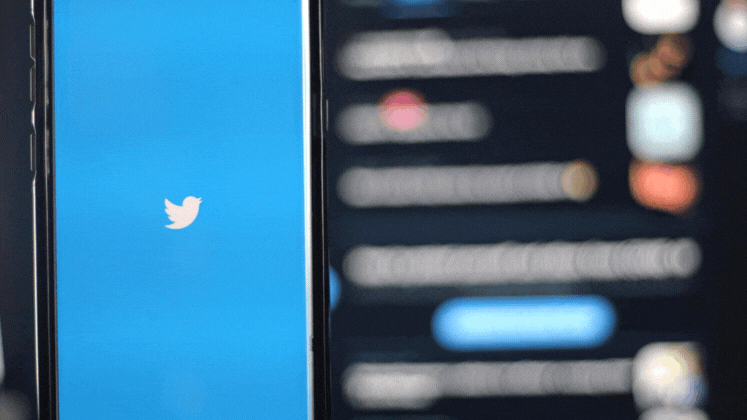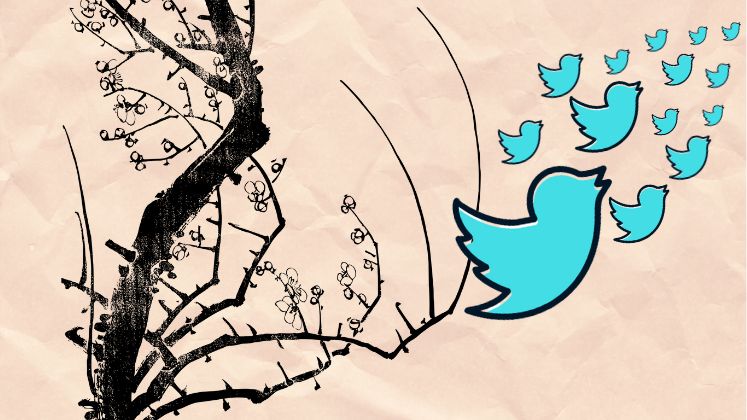Reflecting on Twitter’s trajectory under the ownership of Elon Musk, Charlie Beckett, suggests recent events have highlighted both the value of the platform for mass-communication and how pre-existing tensions on the platform are similar to those experienced by traditional media organisations. A combination that is most likely to end in further regulation.
There are a lot of people leaving Twitter right now, but what are they leaving? There is no such thing as ‘Twitter’.
I mean this in different ways. We should not generalise from our own experience of the platform or even our academic research on this platform. Your Twitter might be quite different to mine. You follow different people. Also, other people will react to you according to your behaviour which might be quite different to mine. Twitter’s algorithms and moderation policies will shape your experience differently to mine according to these and other factors.
We should not generalise from our own experience of the platform or even our academic research on this platform.
So, when people refer to what ‘people on Twitter are saying’ or ‘this hell-site Twitter’ they are really talking anecdotally and subjectively about their own experience. Yes, you might encounter fake news, extremist, even offensive hate speech on Twitter. You can certainly find a lot, often driven by bots, if you look for it. For media researchers Twitter is quite accessible, so there are plenty of academics searching through it. Unfortunately, most of the results are quant not qual. We can find huge amounts of ‘bad’ content but we have little idea about its salience or impact. It is also possible to avoid the worst content if you wish or to ignore it. Just mute and block it. Don’t amplify it by critical quote tweets or angry replies.
I am not trying to underplay the pain caused by abuse on Twitter – especially to women and people of colour. But more broadly, much of the emotional and ideological friction and that people experience on Twitter is because you will encounter people with different views and hear (often loud, angry) divergent voices at a volume and frequency that we don’t experience in real life. This can bring a wonderful diversity, fresh perspectives, new information, insights and delight. But it can also feel like being trapped in a drunken dinner party where you don’t really know or like anyone.
I suspect many of the people departing their version of Twitter are those who have tested their liberal values of deliberative engagement to destruction. They might be leaving Twitter to find a more gentle home for their filter bubble.
I suspect many of the people departing their version of Twitter are those who have tested their liberal values of deliberative engagement to destruction.
Whatever happens under Musk, it does seem that he favours the more open, friction-driven social media model that many find such a strain. The industry that I used to work in, journalism, learnt over the decades that anger, fear and argument are great drivers of attention. But ultimately that requires editorial judgement and a way of engaging the public that is subject to mutually acceptable limits. The news industry is regulated to varying degrees around the world, but in relatively liberal societies such as the UK, the discourse is largely self-managed. Not surprisingly then, the news media, despite all its flaws and biases, are still trusted more by the public than social media when it comes to delivering reliable information.
Elon Musk is discovering that ‘absolute free speech’ is a myth. In practice, all media is regulated to some degree. As the LSE’s Truth, Trust and Technology Commission pointed out back in 2018 regulation of some kind is inevitable, the tough policy choice is how to do it. Musk currently seems to be in a live experiment of his own. He has now banned Kanye, but allowed a flood of other dubious accounts to spout hate speech. He thought the release of the ‘Twitter files’ would demonstrate the liberal bias of previous moderation on the site. In fact, it simply shows that any editor, be they human or algorithmic, operates under political and public pressures that have to be juggled with commercial considerations.
European regulators await to see how his Twitter will accord with their legal constraints. Even in America, pleasing advertisers and the companies, such as Apple, that enable Twitter to operate profitably means Musk will struggle to fully indulge his narcissistic instincts towards trolling and ‘disruption’. I have no idea what Musk’s goal is with Twitter, as a business or as a political enterprise. I am not sure he does either. But for many millions of people around the world – especially outside of America – it remains a vital tool for enabling more free speech, conversation, information and activism. As many of those heading to other more limited networks are discovering, Twitter was never perfect, but it did things other platforms do not. If Musk destroys it, we lose something of global media value.
The content generated on this blog is for information purposes only. This Article gives the views and opinions of the authors and does not reflect the views and opinions of the Impact of Social Science blog (the blog), nor of the London School of Economics and Political Science. Please review our comments policy if you have any concerns on posting a comment below.
Image Credit: Adapted from Jamie Street via Unsplash.









Really thought full and objective comments, great summary, I am tempted to argue some points as I always am, and this tendency of people to look to disagree is reflected in your comments, but on resisting that impulse I find myself in agreement. So bit annoying really.